TEA SHACK NEWS
WORKFORCE ENGAGEMENT SUPPORT TEAM REBOOTED WEST
ISSUE 10 • APRIL 2025

ISSUE 10 • APRIL 2025


A record number of students took part in the annual Girls in Energy conference in Aberdeen at the end of last year, brainstorming creative ideas to complex challenges.
As the workforce of the future, the young women were tasked with finding fresh and innovative solutions to issues they identified as important to their local area.
The one-day conference was attended by around 240 girls from 15 schools across Aberdeen and Aberdeenshire –the largest number to date.
Sponsored by Shell UK and delivered in partnership by North East Scotland College (NESCol) and Fife College, Girls in Energy is a one-year engineering course open to 14 to 17-year-old secondary school pupils.
The initiative is designed to encourage young women to engage with the key STEM subjects of science, technology, engineering and maths. The end goal is to inspire them to consider a career in the global energy sector as it transitions towards net zero.
Around 50 mentors from the energy industry, including volunteers from Shell, were on hand to offer support and real-life advice as the girls worked in small teams to brainstorm ideas and potential solutions.
Following a welcome by Audrey Nicoll MSP and initial presentations, five groups were chosen to present to a Dragon’s Den style panel of judges, where Audrey joined fellow judges Caroline Laurenson, managing director of TL Tech and NESCol regional board member; and Astrid Hoetmer, GM Health, Safety, Security and Environment, Shell UK.
The winning team ‘Girls for Change’, came up with an idea to tackle fuel poverty by harnessing kinetic energy and converting steps to power energy packs.
Simon Roddy, senior vice-president upstream at Shell UK, said: “Girls in Energy plays an important role in helping Shell UK to help close the current skills gap as part of our Skills Transition programme which aims
to help 15,000 people into jobs with a focus on the energy transition by 2035.”
“Through partnerships with NESCol and Fife College programmes like Girls in Energy provide a valuable insight into the vital role energy plays in our lives, both the oil and gas the country needs today and as the UK’s energy system transitions.”
“We hope the experience will encourage more young women to choose this exciting career path. As our industry’s future workforce, I am always inspired by the ideas and solutions the teams come up with.”
The Girls in Energy programme was launched in 2010, and more than 1,600 students have now completed the course, with many going on to pursue careers in the energy sector or choosing a path related to STEM.
#playyourpart Email: editor@teashack.news

recognise action
the

• Enhance awareness of personal hazards and the potential for personal injuries
• Enhance awareness of personal hazards and the potential for personal injuries
• Reinforce the hierarchy of control in reducing personal risk
• Reinforce the hierarchy of control in reducing personal risk
• Understand how your decisions affect the risk of personal injuries
• Understand how your decisions affect the risk of personal injuries
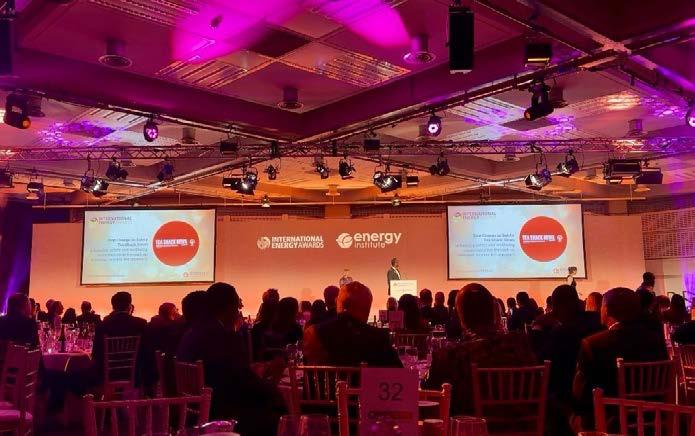
• Improve hazard awareness of routine lifting tasks and their potential to cause a major accident
• Improve hazard awareness of routine lifting tasks and their potential to cause a major accident
• Improve understanding of physical and mental wellbeing
• Improve understanding of physical and mental wellbeing
• Increase awareness of
• Increase awareness of environmental health impacts
• Identify and manage hazards related to working at height
• Identify and manage hazards related to working at height
• Increase awareness of potential dropped objects and their effects
• Increase awareness of potential dropped objects and their effects
Email: info@stepchangeinsafety.net
Safety Rep Forum
22 April / 9:00 – 16:30

stepchangeinsafety.net
Email: info@stepchangeinsafety.net Web: stepchangeinsafety.net
Location: Union Kirk, Aberdeen
Q2: Human Factors Quarterly Forum
15 May / 9:00 – 11:30
Location: 4th Floor, Annan House, Aberdeen
Lifting Event Note: this is one event, over 2 x half day sessions
21 May: 1200-1630 (followed by drinks reception)
22 May: 0900-1230
Location: Village Hotel, Aberdeen
Sunday Safety Session - Q2: Prevention of Personal Injury
22 June / 15:00 – 16:00
Location: Online
Lunch & Learn - Q2: Prevention of Personal Injury
12 June / 12:00 – 13:15
Location: 4th Floor, Annan House, Aberdeen

In February, we had the pleasure of attending the Energy Institute’s International Energy Awards in London. While we didn’t take home the award, the WEST team was thrilled that Tea Shack News was shortlisted for the International Engagement Award in such a highly respected global competition. It was a fantastic achievement for us.
The awards celebrated the significant contributions being made in the global energy transition, highlighting companies leading the way in workforce development, engagement, and innovation.
Congratulations to all the winners and nominees! We’re proud to have been part of it and excited for more success in the year ahead.
Email: editor@teashack.news www.stepchangeinsafety.net/teashack-news #playyourpart
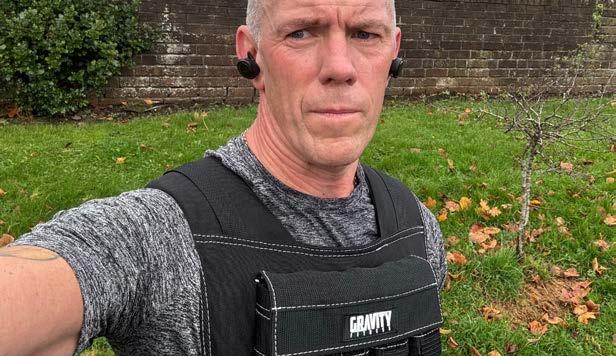
In the UK, one man dies from suicide every two hours and, according to Movember, globally 60 men are lost to suicide every hour. Recently these statistics became more than just numbers to Peter Hepburn of Spirit Energy when his friend lost the battle against his mental health issues. In his memory, and through November 2024, Peter raised funds for ANDYSMANCLUB and awareness around mental health.
He embarked on an exhaustive 30-day personal challenge he called the 5-20100 which involved running 5k wearing a 20kg weighted vest and stopping

every kilometre to do 20 press-ups (100) every day. Peter said that the significance of the weighted vest was “so that everyone would be able to see the weight he was carrying, and that we don’t always see the weight that others are.”
So far, Peter has raised over £5,000! Donations can be made at https:// www.justgiving.com/page/peterhepburn-30-day-5-20-100
ANDYSMANCLUB is a men’s suicide prevention charity, offering free-toattend peer-to-peer support groups across the United Kingdom and online. They work to end the stigma
As I write this article, it is the 27th March, which makes it the 45th anniversary of the Alexander Kielland disaster. Next week, on the 1st April, we will mark 16 years since flight 85n ditched into the North Sea, resulting in the deaths of all 16 men who were on board. These two events, separated by nearly 30 years give us an opportunity to pause, reflect and remember. Our marking of them provides family members and loved ones with the reassurance that those who are no longer with us continue to be remembered and their lives marked, honoured and valued.
Email: editor@teashack.news
Remembrance brings with it a multitude of responses. There is of course grief and sadness at the loss of life. There can be anger, frustration, guilt, shame, and despair that these events occurred in the first place. There can be an absence of feeling – as we numb ourselves against the pain to protect ourselves. All are normal responses to tragedies of this kind –even as the years which separate us from them grow.
There are no positives when disasters occur. But events of this kind enable us to learn difficult lessons – to commit and ensure that history does not, and more importantly, can not, repeat itself.
www.stepchangeinsafety.net/teashack-news
surrounding men’s mental health and help men through the power of conversation.
For support from Andy’s Man Club or to find out more visit https:// andysmanclub.co.uk/
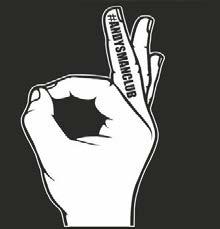
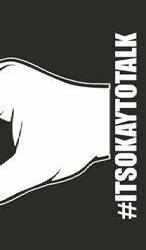
They highlight the importance of our vigilance against complacency, and against deviation from the rightfully high standards expected of all us who work in this Industry. As I meet with families next week to remember their loved ones, I will reaffirm our commitment to honouring all those whose lives have been lost in the continuing safety and return to home of those who work offshore.
The Reverend Michael J. Mair Chaplain to the UK Oil and Gas Industry
If you wish to contact the Chaplaincy visit www.ukoilandgaschaplaincy.com or call 01224 883355.
Try these exercises several times during your day or before a task such as manual handling, to minimise the risk of suffering from MSD (musculoskeletal disorder)
By Craig Sandilands, Wellness Coach & Offshore Lead, Healthoutfit
Common manual handling MSDs are sprains, strains, back pain, carpel tunnel syndrome and hernias.
High risk tasks related to MSDs include bending, crouching, stooping, lifting heavy or bulky loads, stretching, twisting, and reaching, repetitive work and working with power tools for sustained time.
In these instances, manual handling tasks should be treated as a gym workout that requires a warm-up to prepare your body for the task.
Lower back and hamstring injuries are among the most common manual handling injuries. Warming up before manual handling can be one of the many steps you can take to reduce your chances of injury.
Try these quick and easy exercises before the next time you participate in a manual handling task.
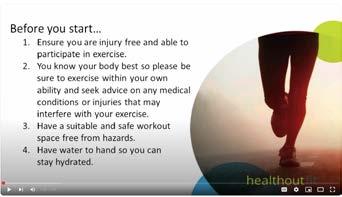

Email: editor@teashack.news
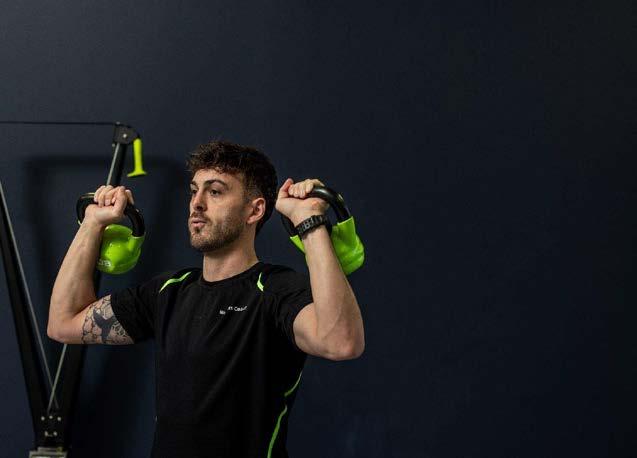
Working for a prolonged period (especially if seated) with display screen equipment such as computers can come with risks. Poor posture is the main risk factor and can lead to development of upper cross and lower cross syndrome - muscular imbalances that, if left to deteriorate, can become a MSD.

Lower cross syndrome is caused by tightness in the lower back and hip flexor muscles and weakness in the gluteal and abdominal muscles leading to an anterior pelvic tilt. If you have an anterior pelvic tilt you may suffer from poor mobility, poor flexibility, and lower back pain.
Upper cross syndrome (forward head syndrome) is caused by tightness in the chest, upper scapula and trapezius muscles and weakness in the neck flexor and lower scapula muscles and this moves the head forward and out of alignment with the spine. This can result in headaches, neck pain and upper back pain.
Upper and lower cross syndrome can be prevented or corrected through maintaining good posture, introducing standing intervals (if possible) when working at your desk, and by regularly carrying out the exercises in the video.
As you will see some of the exercises are carried out with a resistance band, if you do not have a band, doing the movements without can still be beneficial.

“I’ve been doing this job for decades - why do I need my competence checked?”
Fair question. But even experienced workers might not have done every aspect of their trade recently. Keeping technical competence up to date isn’t about questioning skills - it’s about safety.
Studies show that repetition can lead to complacency - taking shortcuts, skipping steps, or being less aware of hazards. Time pressures, overconfidence, or just routine can lead to risks creeping in. That’s why Connected Competence was developed: to enable a safe, competent and transferable workforce.
The Health & Safety Executive (HSE) overview of competence is having the skills, experience, and knowledge to do a job safely and to a recognised standardconsistently.












Connected Competence makes sure that happens across the industry. Instead of repeating different assessments for different companies, workers verify their skills once through technical tests or sitebased assessments. This ensures a base level of competence, no matter where you work or who employs you.
When competence isn’t regularly checked, two things can happen - people get complacent, or their skills slip. In high-hazard industries, such as offshore, neither is an option.
Historically, workers had to repeat different competence assessments when moving between employers, even for the same trade. Connected Competence removes duplication, so workers only need to verify their skills once to be recognised across participating companies.






Temporary offshore workers can access technical test vouchers to cover assessment costs, ensuring they stay verified without extra expense.
Pipefitters, Platers, Electricians, Mechanical & Instrument Technicians, Riggers, and more must verify competence before mobilisation.
Find out what you need and book at https:// connectedcompetence.co.uk/booka-test/




















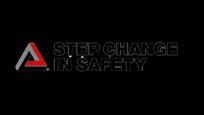

Wellbeing Survey2024
The 2024 Wellbeing Survey, conducted by Step Change in Safety in collaboration with Mental Health in Energy (MHIE) and the Marine Safety Forum, has provided a crucial snapshot of workforce wellbeing across the energy sector. With over 1,300 participants from offshore, onshore, and support roles, the survey highlights both progress and areas needing urgent attention.
Craig Wiggins, CEO of Step Change in Safety, emphasises, “These insights will play a key role in shaping future initiatives to enhance safety, care, and overall wellbeing across industry.”
Click here to read the full report and see how your organisation can contribute to a healthier workplace.
• More Support Needed: Offshore workers, night shift staff, and those in remote locations require better access to mental health and wellbeing resources.
• Breaking the Stigma: Stigma remains a significant barrier. More education, awareness campaigns, and open discussions are needed to encourage a culture of acceptance.
• Tailored Solutions: One-size-fits-all approaches don’t work. Support strategies must be adapted to different roles and environments within the energy industry.
• Fostering Openness: Encouraging peer support, increasing visibility of mental health resources, and equipping managers with mental health training can create a more supportive workplace.
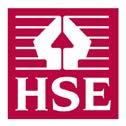
Author: Scott Templeton, HSE
In the Q1 2024 Tea Shack News, HSE gave an update on how we were progressing our Process Safety Leadership inspection programme including engagement with OEUK and SCiS.
The programme came to an end as planned in 2024 and was a significant amount of work by ourselves and industry. By the end of the programme, we had completed 14 inspections across a range of Duty Holders, interviewing a breadth of personnel including engagement with the Safety Reps.
We gathered a lot of information from the inspections and as part of our commitment to feedback to industry on our findings, we published our summary report in February 2025 and presented the high-level findings at the OEUK HSE conference. The report is freely available on both HSE and SCiS website and I would encourage everyone to go and read it.
Click here to read report: HSE ED PSLP Inspection Report
Industry still has challenges which need to be overcome and SCiS are actively involved in trying to drive the improvements.
Workforce engagement was generally positive but there were still areas for improvement. Leaders are getting out and engaging at the front-line but there is more that can be done on involving the workforce in the various improvement initiatives and offering more training.
One of our key concerns from the programme though was an increased tolerance to risk or ‘normalisation of deviance’.
Industry is at the point where we are more willing to accept equipment not being repaired, continuing to operate with a risk assessment or simply taking short-cuts on procedures or not complying with them. Combine that with a loss of experienced personnel and a drop-off in appreciation of MAH risks then it weakens the barriers to a major incident.
We all have a part to play in driving improvement but, for those individuals working at the front-line you have an even more important role. You are the ones living on the installations and seeing the challenges every day, but you are also the ones exposed to the risk so it’s imperative that you help in driving the improvement.
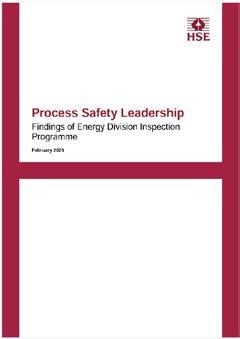
It’s the same messages as last time.
• Engage with senior leaders. Challenge them on their commitment to process safety.
• Seek out what training your organisations provide on Major Accident Hazards. Understand how your role can help prevent process safety incidents and ensure that you are getting the training needed. Do you understand the difference between process safety and personal safety?
• Don’t be afraid to speak up. Organisations can only act if they know there is a problem.
• Understand the MAH risks at your installation. Ask the offshore management team or the Safety Reps about the health of the MAH barriers.
• Use the systems, procedures and tools provided to you. If they aren’t working, raise it with your safety reps, supervisor and the management team, don’t look for a work around.
• Take part in site audits, job site assessments, etc. don’t dismiss them as simply a ‘tick-box’ exercise.
• Be vigilant and avoid complacency. Maintain a chronic sense of unease. Whether you are core crew, ad-hoc or new to the installation, if something gives you cause for concern, raise it. Don’t assume that someone else will have reported it and, if you do report something, ask for feedback.
While we have challenges, it’s important to recognise the positives. Industry has embraced the challenge that HSE set out. There is greater collaboration between organisations, sharing of lessons learned and best practice. Helping each other to improve and close the gaps.
We work in a high hazard environment and while major accidents are rare, the risk still exists but through us all playing our part we can reduce the likelihood of an MAH event taking place and ensure that you all come home safe.
Email: editor@teashack.news www.stepchangeinsafety.net/teashack-news #playyourpart
1. What is the smallest country in the world?
2. Which planet is known as the Red Planet?
3. What is the most widely spoken language in the world?
4. What is the tallest mountain in the world?
5. In what year did the Titanic sink?
6. Who painted the famous artwork “Mona Lisa”?
7. What is the hardest natural substance on Earth?
8. What is the largest desert in the world?
9. How many continents are there in the world?
10. What is the largest mammal in the world?
Answers here: https://www.stepchangeinsafety.net/teashack-news-quiz-answers
OR at the bottom of this page, no cheating!
3. Maintaining things in order, clean and tidy (12)
6. Order of effectiveness (of controls) (9)
9. The removal of energy sources from the work area (9)
11. Not a mongrel, but half glasses half goggles (9)
12. PPE worn on the hands (6)
1. The fit between people and their work (10)
2. Regulations for management of hazardous substances (5)
4. The E in RPE (9)
7. Feeling of being run down or tired (7)
8. Common hazard where person loses their footing (4)
10. PPE worn on the head (7)

5. ______ Talk, conversation held before work commences (7)
11. ________ or situational awareness, being alert to your surroundings (7)
Got any interesting ideas or stories you’d like to share with the rest of industry? Anyone you’d like to recognise for being a safety champion?
Please get in touch with editor@teashack.news and we will consider it for future issues.